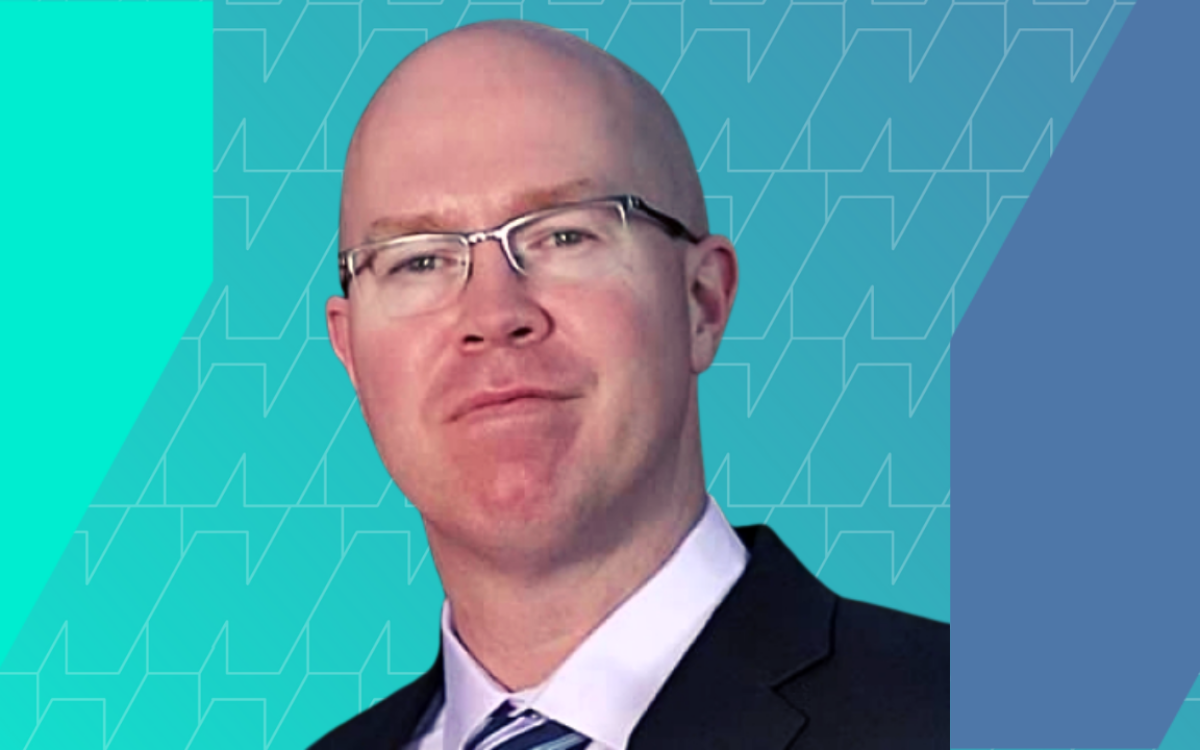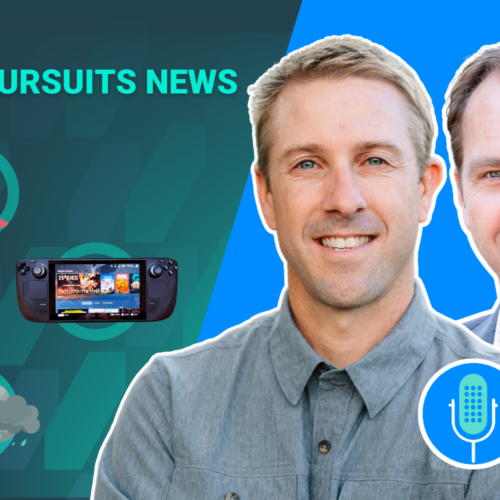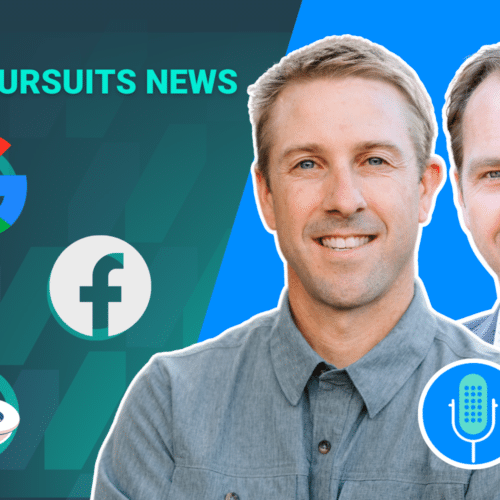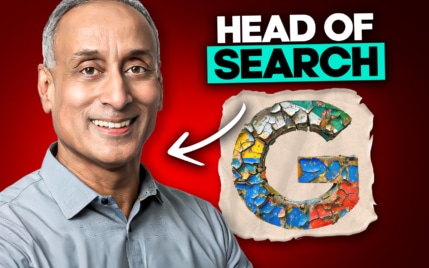How Brandon Gaille Grew 3 Sites That Each Get Over 2 Million Visitors Per Month

When you buy something through one of the links on our site, we may earn an affiliate commission.
Today's guest on the Niche Pursuit podcast is a successful website builder and entrepreneur Brandon Gaille.
Brandon is the host of the popular podcast ‘The Blogging Millionaire' and owns three successful websites that each get around 2 million visitors every month — yes, that's not a typo, 6 million page views each month across his three websites!
Brandon goes deep and provides some great tips and solid advice for a range of topics that most website builders will find super interesting. For example, he talks about producing quality content and the importance of creating a content plan to be successful. Brandon also discusses the different keyword strategies he uses, centering around low competition keywords.
In addition to the above, the conversation delves into backlinks, and Brandon shares the differences between active and passive backlinking. In this section of the interview, some of the standout moments are his tips and strategies for building organic backlinks. This offers an insight into how he receives over one thousand passive backlinks each month across his sites.
To finish up, we chat about Rank IQ, a great piece of software founded by Brandon that incorporates his strategies to build successful websites. The software uses AI technology to uncover keywords for multiple niche markets. The tool spits out keywords that are often easy to target and also offers other valuable benefits for website builders in general. In addition, Rank IQ provides intelligence about what related keywords should be used, how long the article should be, and other details to optimize your articles.
Some of the other tips and topics discussed (and mentioned) during the chat include:
- Brandon's challenging, moving, and inspiring background story
- How one good keyword could lead to hundreds of blog posts
- Updating content and why's it's super important to do it correctly
- Understanding your niche
- The niche markets of his blogs
- Using charts (graphs) and the best size ratio to use
- Which types of posts work best for backlinks
- Growth hacks using Facebook groups and podcast interviews
- The importance of a good homepage
- Why nothing compares to blogging in terms of ROI
- When to skip a keyword
- The mistakes made during keyword research
- HARO (help a reporter out) for backlinks
LINKS AND RESOURCES BRANDON GAILLE MENTIONS IN THE PODCAST:
This Episode is Sponsored by: The Blog Millionaire
Watch the full interview with Brandon Gaille:
Read the full transcription:
Jared: Welcome to the niche pursuits podcast. My name is Jared Baufman, and today we're joined by Brandon Gaille Brandon.
Brandon: Nice to be here.
Jared: Yeah. Good to have you. I mean, it's a real treat to have you just a little background, sickle kind of understand where you're coming from. Uh, you run the, the blogging millionaire podcast, which is a very successful and longstanding podcast about blogging.
You also are the founder of rank IQ, which we'll get into talking about, but it's a really powerful SEO software tool for ranking better. Did I miss anything at the outset? Nope.
You got it. Got it. Got it. Okay. Good. Good. Well, we've got a nice journey in front of us today. We're going to be talking about your background.
We'll talk a little bit about some of your successful website building as well. We'll get into some tips that you have to share with people. We'll talk about how you ended up with rank IQ and starting that. Why don't you catch us up? Bring us up to speed on some of your website, building journeys and kind of your background.
Brandon: While I was always into websites and in my twenties, I had some successful multi-billion dollar companies that were based upon building a lot of websites and getting people there and giving them information in exchange for their email. And that went very well for many years. And then as I was in my late twenties, I started to have some health problems and he continued to get worse.
And essentially I lost my ability to think and use my mind, a little mental handicap there. And within about a year, I had lost everything that I had made in that short period of time. And from that point on probably for another six or seven years, I wasn't able to do anything because the doctors couldn't figure out what was going on.
It wasn't till that seven, eight years later that a doctor identified. A condition called dysautonomia. That was the underlying root cause. And essentially the dysautonomia was keeping me from being able to sleep. And I, after not sleeping for three years, that's when my mental capability starting. Fade.
But once I got out of the right treatment and started sleeping, I have to sleep 12 hours a day instead of like a normal person to six to eight, because my sleep disrupted even with medication, but after a year or two of that treatment, I was able to be myself with my mind again. And I ended up starting a small marketing services business.
And that's what I was doing before with the websites, getting them to rank on Google. And I started doing that for clients and it wasn't necessarily what I wanted to do. I was just trying to get something started after about a year and a half. I was pretty miserable of doing it just cause I was having to talk to all the customers and I wasn't really able to scale the.
And one of my employees came up to me and asked me to take a look at her blog. And then I reviewed it. And at the end of that night, I realized that I need to start a blog. And that was my little side hustle my niche on this side. And I decided to spend six months researching all the top blogs in just out there at the time I was looking at the Alexa top two, 20,000 and specifically I started looking at blogs that weren't big brands.
And as I saw these blogs, that weren't big brands and their content was really bad. And the one thing they were doing consistently, they were writing posts on keywords that were very obscure, that didn't have a lot of competition. So I had that as the foundation of launching my blog. And in 2013, I launched my blog and.
In about 18 months after that I broke 1 million monthly visitors.
Jared: Wow. That is a fast ascent in terms of it. And that's 1 million monthly visitors that's per month. You said that. Yeah. Wow. That is really fast. What a journey too, but you've been through the ringer and back.
Brandon: Yeah. It was a lot of downs for a long period of time.
I don't think everyone that knew me at some point when I was successful because I had success right after college. And people saw me as this, a serial entrepreneur that anything I did pretty much turned to gold then, but then they saw my health fade and my ability to think and have conversations. And after three or four years there wasn't one person that I hadn't known as a friend or a business contact that was even keeping touch with me.
I was just there by myself with my wife to be, I remember being. Then the hospital. Cause I went in for a heart cath and because they were showing that the dysautonomia was calm and not sleeping was causing basically all my organs to fail over time. And the, my heart was having these failure problems and they thought I was going to have open heart surgery after doing a heart.
Cath went in there didn't they, heart was fine, but they kept me in the hospital and they, and that day they had a couple of people come in and do some neurological test after the heart cath. And that night I went up, the nurse told me to go ahead and get up and take a shower. When I went up to get a, take a shower, I felt something funny in my leg.
Cause the heart cath goes through your femoral artery in your leg. And I looked down and all of a sudden there was this big lump about the size of my fist. And I started to lose consciousness and I was completely naked and I started going back to the bed. Fortunately, my fiance was there and I fell on the bed and she called out and.
People started yelling code blue and they flipped me over. And since they couldn't cut me open and try to seal it back up, all they could do was the nurses and doctors. They had about eight of them in there for about 20 minutes. They were just taking turns, putting their entire body weight pressure on that area, trying to get it to clot.
And the doc, I mean, that was one of those moments where the doctor was looking me right in the eye and saying, kept on saying, stay with me. And I could see my fiance. Leaning up against the wall. Just, I remember just looking distraught, but eventually they were able to get a clotted. And I remember the doctor saying, trying to be funny, I guess, because so 10 situation, he said, let's make this, let's turn this from an R to PG and get something over him because they didn't take, because my femoral artery is right there in my upper thigh.
So I'm sitting there in front of all these female nurses and doctors and just completely naked. Essentially dying, but they clawed at me and things got better. And I focused on my family and being with my family, didn't think I was going to have much success. I just figured I'd be struggling mentally, I guess.
I think that's just natural. When you have a family member who has a physical or mental handicap, that's getting worse. They don't expect them to return to the way they were, but by God's grace, I was able to find a path back to first mental and then physical health.
Jared: I think it's really emblematic too, that you were able to have such a quick success with your website after having such a long road to just getting back on your feet again.
I mean, do you, I mean, do you think there's anything that you're able to pull from all of your experiences with your health and even your small business and some of the frustrations there that you're able to channel them towards the website, you had the success that you got out of the gate pretty quick.
Brandon: Financial stability was the big thing, because I wanted to, as my, I was still worried that my health would get bad again. And then my family would be left with financial situations that they could handle. And the business, the marketing services, I was always starting from zero every month and I had a churn of clients.
So I'd reached a max point, but if something happened to me, all those clients go away because they relied on talking to me for consulting and executing the marketing campaigns. And that's why I focused in on blogging, because that was something that if I built the content and it's getting traffic from Google, that's a residual income.
And that as you build up your traffic, it stays there and you're just building on something else. So after three months I was getting a hundred thousand monthly visitors. And that those are 100, 100,000 monthly visitors on the pages and posts that I had stayed there. And as I made more posts, it continue to build.
And that allowed me over time to have income that would come in. And even if I had a, even if I died in a car wreck, that blog is going to be there and my wife can manage it, continue to add blog posts to it, and that income's always going to be there. So that was the big thing that I learned from all of that.
I guess it had an impact on me because I knew that in my twenties, I, I built a accompany that relied largely on me. And when my health went away, just within a matter of year, everything went to zero. And that was the big thing that I love.
Jared: So as you're building this website, you talked a bit about, I believe, basically focus on really low competition keywords.
What was your approach? Were you putting out a lot of content and how is it, you know, what do you think underpin what allowed it to rank so fast,
Brandon: extensive keyword research. So I became just the expert in that area from constantly spinning. Not there's a lot of people, they don't even do keyword research.
They just write upon topics that they like about, or they see other bloggers writing about and others that do it. They'll dabble in it for an hour here, an hour there. But I was spending up to 20, 30 hours a week, those first six, seven months just doing keyword research because you have to dig cute finding keyword research.
It's like digging for gold. You start at the top. You have an idea that there's something down there. And then you dig and you go through this just to find one nugget, but when you find one nugget that can turn into a hundred or 200 posts. So there was someone I was helping out blogging back then that they had a couple of posts on inventors and it was like Albert Einstein's inventions and our different popular people that had had inventions.
And when you did the keyword research, you already knew that those were getting traffic and they were ranking for them. And if you just looked, if you dove deep into all the keywords that had inventors or inventions on them, that opened up 300 to 400 blog posts that they could do. And so when you find that goal, it's you find a piece, but it could be like a big.
Gold or there that you can uncover. So lots of work defined the initial goal gold, but when you do, you can expand. And of course, it's easier to write if you're just writing about, if you're going to post on different inventors, you're able to use a lot of styles and same intro conclusion formulas, and it makes it easy to knock it out.
And then Google likes it more because you build topic authority because they see that you're consistently writing some of the best content on this topic. So it just kind of builds upon itself, but keyword research, extensive, and then coming up with processes and algorithms. Once I started getting things to rank and saying, okay, this, these type of keywords are performing well.
And then applying those algorithms to future keyword research that is. It's interesting.
Jared: I hear a lot of people talk about finding low competition keywords, but maybe we should change that to low competition, key word, right. They'll go find a low competition, key word, and they'll write about it. And then they'll move on in front of their low competition, key word, and then write about it.
But it almost seems like your approach was about finding low competition topics that you could then expand on over and over again, because you talked about how about writing, you know, maybe 300 articles on something. Do you think you found low competition topics? And then that's part of how you're able to really get this traffic search so quickly, or what's the fact that if you were building topical authority that that allowed you to rank for some bigger topics.
I'm just curious because there's an interesting
Brandon: dichotomy. A bit of both. Yes. I found keyword, certain key words that had lots of variations and it's no different. You just have to understand that your niche, that you're in, whatever. Isn't for example, food bloggers, 98% of their traffic comes from recipe posts.
You're going to dig deep on, on different types of recipes and you could end up having a hundred posts on different dessert recipes and you go deep and you have the same post style. So it's easier to knock those out. And then at the same time, Google gives you that authority.
Jared: So that was back. I think I heard you say about 2013.
How long did you have that website for, and where's that website at now?
Brandon: I still have the website is, uh, Brandon gaylene.com, just my name, but marketing and other related topics to small business. And it is close to 2 million sessions. And then I ended up, uh, expanding with two other blogs over the last six years.
One in one's, a Christian blog and the other is a jobs related blog. And each of those are also over 2 million monthly sessions. So overall my traffic that a gift from my blogs is over 6 million monthly sessions. And with most bloggers, especially pro bloggers, you're going to reach a point where your traffic peaks out and you're going to start plateauing.
And there you find all the gold that you possibly can and you're not going to grow as much. And so what happens is you want to be able to branch out into another niche and on top of that, it diversifies your income so that if there's any type of impact from a Google ranking algorithm or to something else that comes up, do you have a good diversification of your income?
Jared: You know, you say 6 million monthly visitors as though you're just telling me what you had for breakfast as a staggering amount of people that are coming to your websites every single month and visiting. Congratulations. Congratulations.
Brandon: Thanks. It takes a lot of work. It's not something that's easy to do, but in regards to all types of small businesses that are available for you to start there's there, I don't think there's anything close to what it is to have a blog because there's hardly any expenses related to it.
So it's almost all pure profit. Once you write something and it's a good piece of content, it's going to stay up in the rankings sometimes forever. And if someone outranks you, it's just a matter of adding a little bit more content to get your ranking back. So it maintains it. You could go on a vacation for three months and have all your posts scheduled that you did three months ago and not do anything for your blog and see it grow and maintain itself.
So although it takes a lot of effort, especially in the beginning to get that, to get the traffic coming in, it's the ROI that you get for time invested from any other type of small business, nothing compares to blogging.
Jared: So let's transition into talking maybe a little bit more about the details about how you build your sites.
Cause it sounds like you don't just have one, you have 2, 3, 3 sites that are getting, you know, we'll call it a lot of traffic. I don't want to use dramatic words like insane, but it's kind of how I'm feeling, but yeah, that's the scope of what you're doing is, you know, a little bit hard for me to wrap my mind around what's, you know, maybe help me understand.
What the process looks like to scale out a site like that. And I guess what I'm getting at is help us get perspective on the steps that go into scaling out a website that big. So we can maybe start to assign to ourselves where we're at in that process individually.
Brandon: Well, as I mentioned before, it starts with keyword research.
So you're going to do your keyword research and identify all the key words that you're going to be writing about. Sometimes for the next year, I will plan out everything in one big batch, and let's just using batching to save your time. And so instead of if you're going to spend 80 hours for the entire year and keyword research, instead of doing it five hours a week, over a period of months, you're better off doing 40 hours week, one 40 hours a week to dive into it there, you're going to find things you're not going to have to start over with your thought process.
And then about 80 hours, you can easily come up with 52 to 150 keyword phrases that can be turned into specific blog posts that are then added to your blog, post planner. So at that point, you've got your plan. You've got your keywords that you know, that you're able to, you're going to be able to rank for, because if you don't do the keyword research part.
Then you're, it's a coin flip, whether you're going to get traffic and writing your posts, it takes time and it's not easy to do. And you don't want to be riding and spending six hours on a post. That's never going to have a chance to rank because you didn't put in step one for the keyword research. So step two, you've got your post planner.
Everything's laid out. Now it's time to start writing your posts. The best way to do it is to try to save time is to use some type of AI SEO software that when you type in the keyword, the senior planner, that's gonna show all the topics and words that Google wants you to cover in order to compete for a first page ranking.
So you put in SEO tips or things to do in Houston, Texas. Then that AI report is going to give you the top 100 words, which are essentially going to show you everything that's going to be in your article. So for things to do in Houston, Texas, it will literally list out all the things to do in Houston, Texas, that the post to the top 30 rankings on Google or listing that way you can quickly make your outline in a matter of 10 to 20 minutes, as opposed to if you did it.
Normally the old way would be going through each of the top 30 posts on Google, one by one, weeding through it, and then writing down or typing in all the different topics that all these other posts covered that you want to cover. Because at the end of the day, you need to be able to create the most comprehensive piece of content for that topic.
If you can't do that, then you should pass on the key word and the AIS, your reports, like my software rank. Allows you to type in that keyword and get the information that essentially the AI does. The research for you tells you everything you need to write about the, create, the outline. And then once you have the outline, then it's just a matter of going through and writing out your posts.
And sometimes these posts can be recipe posts. They can be as small as 800 to 1100 words, which is you're going to be your target word. Count for things that are more, more competitive, like SEO tips. It might be as much as four to 6,000 words. Every key word that you're trying to rank for, you have to be, you have to treat by itself.
You can't be like, all right. Some SEO guy told me that you need to write 2000 words on every post to be able to rank. Every word, is it going to be treated independently for one post? You might only need to write 1200 words for another posts. You not might need to write 5,000. It all depends upon what's there.
And if you can't write 5,000, then skip that key word and focus and find keywords where it's easier for you to knock it out because that's one of the things that comes up a lot in my mastermind group is people are just like, well, this Fran have reported this key word, and I'm going to have to write 5,000 words.
I don't have time for 5,000 words. Can I write 2000 words? And then I tell them, well, you're better off not doing it either go and write the most comprehensive post out there or find something that's a lower word. So
Jared: I took some notes here. Do you mind if I ask you maybe some deep dive type of questions for some of the things that you just asked about, or you just talked about, sorry, talking about keyword research and how important is it's clearly you brought it up many times now.
What are some of the big mistakes that people make in keyword research? Maybe some of the shortcuts or areas of opportunity to miss out on?
Brandon: Yeah, the biggest mistake by far is they focus in on what's called search volume. So all the basic keyword tools except rank IQ and HRS, just show you search volume in the front end and search volume.
All that means is how many times for a specific keyword someone searches. So if it's search volume is 100, that means they searched it 100 times. It has no impact on how much traffic you're getting. That number is meant to be used only for people that are buying Google ads is not meant for someone trying to.
Organically through SEO. So always look for either use age reps or rank IQ and HRS uses. What's called traffic potential and rake IQ has estimated yearly visitors and these metrics show you what you can expect to get. If you rank on the first page of Google, because you're not going to rank for one word and you have all these different variations, LSI words, things that are similar to the word that you're trying to rank for.
Then sometimes it's anywhere from 300 to a thousand words and age refs and rank IQ looks at that and says, okay, the word. The URL's ranking on the first page of Google for this keyword. These are the traffic, this is the traffic that they're getting. And then you're able to see that traffic and make a good decision and say, okay, this is worth doing, because it will get me this much traffic.
And this traffic falls in the niche that I'm in or those close, closely related to my product. But most bloggers there, they just even most small business people. They're just not experts. And almost all the tools out there that are SEO are designed for CMOs and SEO experts. They're not designed for a small business owner that doesn't know much about SEO or a blogger that wants to rank their blog posts.
And it's overwhelming the information and the topical information. Isn't the right information. And he ended up making the wrong choice on your keywords because you're basing it on the wrong.
Jared: Yeah. Even if the volume data was even somewhat accurate, you know, each article is going to rank for a collection of different sets of keywords.
Right. And, and obviously every article doesn't just rank for one keyword. And so yeah, you kind of underscore really important topic. So let me, I think maybe the elephant in the room is link building or links. I mean, we've spent a lot of time talking about your success by targeting these types of keywords by finding good keyword opportunities, low competition, not focusing on some of the metrics that don't have an influence.
How big of a role have links played in the growth of your websites? I mean, are backlinks important to it
Brandon: back? These backlinks are important, so that the core three. A blog or website needs to have in order to rank well and get lots of organic Google traffic is keyword research, content and backlinks.
Now we already talked about content and keyword research. Now you can have a low what's called the low domain authority site. Domain authority is essentially a score given based upon how good your backlink profile is, how many backlinks you have. Zero domain authority means you don't your brand new website.
You don't have any back links. A 100 domain authority would be something like CNN, Fox news, ESPN, where they just have a ridiculous amount of high quality backlinks. Ideally you want to be in the crossing 30 domain authority, and you can get there with, you know, anywhere from three to 10 high quality links.
It's not going to be a link from some blow level blog. You're really going to want. A link from newspapers, new sources, brand hot, big brand blogs, industry, specific blogs. And by having those back links, it allows you to rank for more keywords and rank higher. So if you've got a blog and you're, and you build extensive backlinks over the next year, and right now you're getting 10,000 monthly visitors, even if you didn't add any more content and you added a bunch of backlinks over that year of time, you can go from 10,000 monthly visitors to 80,000 monthly visitors because you're building the value of your authority in, in Google's eyes and pushes all your posts.
Jared: Now are you actively building backlinks or is it something where you're trying to produce content? That's enticing enough to get back links? Where does an active backlink strategy kind of play into your, you know, your website?
Brandon: That's a great question. So there's two types of backlink strategies. One is passive where the links are coming to you and the other is active.
So passive the, some of the strategies that I use. Number one, just as I mentioned before, targeting low competition keywords, where you can rank number one, just by ranking number one, you're going to get a lot of backlinks. There was a study by age refs that said the number one ranking on average it's 24.
High-quality passive back. Every year. So as you, if you're going after low competition keywords and you're ranking number one, what happens is bloggers and reporters. They're just like us. When they need to link to something or find a stat or find out information, they just do a Google search and they're on deadlines.
They're not going to go 20 down, but if you're ranking number one, they click on it. They find something and then they link back to you. So that's one, one passive strategy. The other is writing lots of post on statistics. So if you have a pet blog, you find out all the different, like pet ownership, statistics, pet, dog, biting statistics, you find out all the type of statistics related to your industry and the right, really comprehensive posts, listing a lot of stats and you're wanting to wake high.
So when these reports. Our writing of an article on someone getting bit by a dog and they go to Google and type in dog, biting statistics. Your statistics both shows up and that's going to drive passive back links. The third area would be original research post. This is where you come up with your own, a research study, your own statistics that you came up with and the published that.
And because it's your own research that drives a lot of people linking back to it because it's something new. And most people don't do the original research because they don't feel like they have a big enough audience. One of the growth hacks that I use, even though I have a big audience, is if I want to do a research study, I will identify Facebook groups within that industry that have 2000 or more.
Facebook group members. And then I would, we'll come up with the questions and ask the questions to the Facebook group. So I can quickly do a comprehensive research study and then publish a post on that. So that's passive active is where you're actively going out and doing it. You want to do both at the same time.
Active is very important when you're starting your blog, or if you don't have that many backlinks to your book. Some of the easiest ways are to do podcasts interviews, just like right now, we're doing a podcast interview. Almost every podcast is going to link back to your website in the show notes. And a lot of the podcasts are going to have high domain authority sites.
So I think your site is over is a high domain authority. I think it was 60, 70, 80, something like that. It's really high. And that is a very valuable back link. That's like a major industry website or a local newspaper. So those add up and it's real easy to do. You can just, whatever niche you're in, you go into Google, top chart or apple podcasts, top charts, and go into that industry.
And it lists you out the top 300 podcasts. Then you just go down at one at a time and reaching out to them. And you're going to get a certain amount of people of that run those podcasts to reach out to you, do a simple 40 minute to one hour video. And there you go. There's a backlink then I think that's probably the easiest.
The most popular one used for bloggers would be using a site called help a reporter out it's where all the reporters and bloggers, they go there and they ask a question when they need content for their article, or they need a quote. And then the sources, which would be myself or someone else trying to get the back link.
They respond to that and then they get quoted and they get a link back to their web. The most important thing with heroin, you just gotta be, you gotta be responding to these first because a lot of times just like the reporters that you're going to click on the first thing in Google, if you're the first person to respond to their query on Herro chances are you're going to get picked and get that link.
So doing podcast interviews and working Herro for that first year and spending about 30% of all of your time on that, because most people just, they don't want to do link building and they'd rather just write posts and the same thing with keyword research, people just want to write content and they don't want to do the dirty work with keyword research or with link building.
But that first year you need to have 30% of your time on keyword research, 30% of your time on LinkedIn. And then 40% of your time on creating content.
Jared: Ooh, that's a good, that's a good overview, right? Pass it. I love it. You break it down passive and active. And some of the things you shared past about passive link-building art, could you talk about it?
It's like people don't like to link build it. It's a lot of work and the success rate is so low it's to be a little demoralizing, right. Especially over time to keep getting up and going after it. So I love what you shared about some of the passive link-building strategies. I wrote down your statistics idea.
I'm going to have to go look into that myself. As soon as we get off this interview, I love that the active link building approach. Do you think that, I mean, when it comes to building backlinks, whether it's in the active or the passive role, you talked about 30% of your time. Is it, can you expand on that a little bit more?
Like, is that something that you kind of try to bucket your time into? And I'm curious how you came up with that number. Like, I could be a really good way for people to kind of framework how much time they're spending on link-building.
Brandon: I think with no matter what. When you, when once you have a set process in place, you should keep track of your time, hour by hour, minute by minute, over two week period of time.
And then that will give you an idea of where you're spending your time. Even if it's not a blog. I mean, there's just so much time wasted or you're doing something that can be outsourced to someone else. So always start with spending two weeks, logging everything that you spend time on. Now, as I mentioned before that 30% number on link building.
That's when you're just getting started out that first. And once you have that foundation there, then you don't have to worry about doing as much active link-building anymore. And then you go to passive and that just becomes part of your content strategy. Because at that point you're creating the statistics post, the original research posts, and now, and then also you're getting all those links from, by ranking for all the low competition keywords.
So it shifts after that first year and that 30% that was on active link building now goes to content building. But you have to do that first year, or you're just not going to rank for much at all.
Jared: Right, right. Yeah. If you don't have that solid base, then you can't transition to the second phase.
Brandon: So I've, I've written about statistics posts on, on every statistic.
Imaginable related to marketing or business. And those posts along with the low competition posts to get number one, I get over 1000 high quality backlinks every single month without doing any active backlink building. And I started from my website was a brand new website. It started from zero and now it's in the mid to high seventies and the links and it continues to grow because of all the passive strategies with the statistics posts in particular drive the most.
Backlinks passively for me
Jared: really quickly. What role did graphics play in something like that, or you had an infographics? Are you making it something that's really pretty? Or is it literally just the fact that someone needs a statistic to quote that gets you that back link?
Brandon: That's a great question. The majority of the backlinks do come from people just grabbing the quote.
Actually you want, so you want your intro to be short two to three sentences and go straight into statistics because that's what they want to see. You don't want to bury the statistics and paragraphs. You want them either numbered or bulleted out because once again, these reporters and bloggers, they, they want the easy button.
And if they have, if they click off, even if you're ranking number one and they click on your post and it's just a bunch of paragraphs. They're out. So textual based statistics will get you the most. Now, when you're doing original research or with statistics, you can take it to the next level and get some more, uh, backlinks by people linking to specific charts.
So what you want is a 16 by nine picture, and you want to make sure that you can see whatever statistic that you're showing and a graph, or if you're just writing it out. That it's visible on mobile. A lot of times people will create some great statistics infographic, and they just look at it on their computer and it looks great, but the majority of the people are, are seeing this on mobile.
So you want to make, then that's why the 16 by nine works and you want to make sure your text is nice and big. The best images that get backlinks are going to be, uh, graphic based, right? And Canva has a great graph maker to where you can make a graph just like Fox news, CNN in a matter of minutes, because that's another thing that bloggers and small business owners are like, oh, I don't know how to do this.
Or they'll try to use, try to build it themselves without using a template. But if you type in Canva graph maker, that'll give you the basics. And once you get the template down, which might take 10, 15 minutes, you can reuse that template over and just change the numbers and change it from a pie to a bar.
But that's a great question. The statistics they get the most links are testable base, but you can get, take it to the next level and get more out of that article or in your original research publishing 16 by nine images that highlight specific stats using grads.
Jared: I had a friend talk about to have several websites and one of their websites is more established.
They have, you know, their articles. They put a lot of time into making sure that there's a custom, you know, somewhat custom branded theme that goes along with the way the website looks and they have graphics that are custom made for the articles. And they have another website that has the same level of content quality, but they haven't gotten around to doing anything other than a standard generate press, you know, website build.
And, you know, they haven't really added anything custom except for an image or two. Each of these posts, the success rate they have on Herro is significantly higher with their website that has a nice branded look and feel to it compared to their website. That's just kind of a stock out of the gate website.
So I was just curious, you know, I just shared that story cause I was curious to hear you talk about it and it sounds like they grabbed the, they grabbed the text, but the imagery, the custom graphics and the way that it all ties together is important
Brandon: as well. That's two separate things. When you're ranking on the first page of Google for statistics, and someone's been a reporter, finds it and they grab that stat and use it the other year.
You mentioned heroin, which is different heroin. That's why it's important that it's not necessarily the post itself, because when someone is going to decide to choose you as a source, they're not looking at your posts, they're looking at your homepage and it does make them a very big difference. If your homepage looks like you're a $500 million website, it doesn't take much with themes today and Canva to make your homepage look solid.
And if it doesn't, they're not going to use you because that's what they're basing it on it's perception. And it's unfair because you could have just thrown up a website and be a really great designer yesterday and not be a great expert, but they're going to judge you based upon what that's, what that says.
And the most important thing is going to be above the. For you to mention where you've been seen it. So if you've been seen or been published in some other magazine, you put that up there because as soon as they see that's all that, that, that checks the box, they go, okay, this person has been published on CNN or some other industry source.
And that's it. Right. And
Jared: that one down too. So let's talk about, you've got a website that's obviously been around for quite a while. And at some point everybody runs into the question of content, refreshing of updating old content. How important is that? Do you spend time updating old content, any tips to share about that process?
I've got to imagine with a site like yours, the size it is, you got a lot of content that's that's aging, or that has been up there for a while. So you're probably a really good person to ask about it.
Brandon: Yes, content updating is actually more important than publishing new posts while you have to do both.
It's a lot easier to update a piece of content that you're already ranking for, to go from number 11, to number three. And just so everyone understands the difference in traffic for number 11 and in the top three, only less than 1% of all Google searchers click on something after page one, the top three results get 74% of all the clicks.
So you can go from getting next to no traffic to getting almost all of the traffic just by updating your posts. Now, the key here is focusing your time updating posts that are already ranking and getting some type of. If your post is not getting any traffic at all and nowhere near the first page, you're not going to get any ROI for the time that you're investing there.
And when you do update a post. The best practice is to add content to the end. So if you've got 25 best places to see four, five best places to go in Houston, Texas, and you got pushed down the rankings because someone else came up with 35 ways and people tend to click on the highest number and you recognize that.
And you're like, okay, I just need to come. I just need to add 15, 50, more places to see. And in Houston, Texas, instead of adding them near the top or in the middle, by adding them to the end, it essentially keeps your content the same as it is currently. And because what can happen is people can change content at the beginning or in the middle part of the post.
And all of a sudden what was keeping people on your post long called dwell time, which Google looks at is no longer there and it hurts it. So the last thing you want to do is take a site. That's getting our pages, getting. And change it to where it's getting less traffic. So the safe move is always try to add sections or content towards the end and only spend time updating content that already gets traffic on Google.
The simple way to do this is go into Google analytics and rank all your pages by highest traffic. And then find some sort of threshold where you're saying, okay, this point, these are only getting 20 visitors per month or 100 visitors per month. And I'm not going to update content after that. If they don't get at least 20 or 100 visitors a month from Google, that way, your time as is invested.
And it's just a post that's getting 600 visitors per month. If you're ranking number seven, you move up to number three. You could easily be getting 2,500 visitors month per that. So I spent probably six months, a couple of years ago, updating hundreds of my posts. And not only did the traffic increase from increased rankings, but the amount of ad income increased because I added more content.
And so if you're adding more content, people are reading it. More ads are showing up. So instantly when I published the new version of the content, I would increase the ad income on that page sometimes by 50 to 100%. So it double positive whenever you're updating. And that's why you want to make sure if you have posts that are already ranking well, that you haven't touched in many years, do you want to focus on those first?
Because those are going to be your biggest wins. And before writing a post on something new that you might have to wait three to six months before it will rank and you don't know exactly. How much traffic you're going to get. It's not as guaranteed. You've got guaranteed resources that are making money and getting traffic take care of those first, before moving on to publishing a bunch of new posts.
Jared: So let's say I've got a website with 500 articles or something, just for a nice round number. How do you recommend this plane out? Like, do you, do you wait until an article, maybe it's a certain age and then you go back and look at it to evaluate it for updating it. Do you maybe once every six months you just go through everything, that's getting some traffic and you try to add updates to all of them.
What's a good framework for someone to start to operate by so that it doesn't just blow them, you know, blow past them and they forget about it.
Brandon: Well, just like you have a blog planner for publishing new posts, you should have a planner for updating past posts because you're going to have some that are, that can be evergreen and stay that way.
And the only time you're updating those is when you lose rankings because someone else is written. More comprehensive post on that topic. And then you have the ones that aren't evergreen that might be like SEO tips, because SEO changes every year. You want to update that every year. In addition to that, as for these posts, as you're updating them, you're able to, at the end of your post title, if you put in brackets the current year, that's going to increase your click-through rate.
That's improvement that just having anything in brackets increases your click-through rate on headlines by 20 to 30%. But if you have the current year, people are gonna click on that because when they're looking to SEO tips and they scan the headlines there, they're going to want the most current information.
And when they see 20, 22. On one and the others don't have, that's going to draw the click. You get more clicks, you go up in the ranking. So, so two, two paths here. One is for evergreen content that you see are losing traffic or losing rankings. And the other is non evergreen content that you need to update once a year.
And ideally you want to update the once a year content November to January so that you can change from 2021 to 2022 and take advantage of that right away.
Jared: Okay. Great tips. Great tips. Okay. So let me kind of bring us back here and recap everything. So we've got.
Brandon gate renegade.com. And I want to spell it just for people listening on the podcast. G a I L e.com. And, you know, thank you for sharing that people can go kind of take a look at some of the topics or the concepts that you've shared with us. You've got two others, two other websites, collectively getting 6 million page views a month.
So as if you didn't have, you know, enough going on already, you founded rank IQ as well. Talk about rank IQ and what problem you were trying to solve in the industry with.
Brandon: Just real quick, quickly branding daily.com. You're not going to get any of the tips that I'm covering right here. I'm focused on low competition, small business related keywords, things that I can rank for.
But the, as for all my SEO tips, you're going to get that from my podcast, which is the blogging millionaire. So I am on a weekly basis doing new growth hacks and going deep dive. So I just did a series on my six big growth hacks for link building. So going into the specifics on how to book your podcast interviews quickly, and identikit podcasts interviews from high domain authority sites, same thing for hair and for others.
Now, as for rank IQ that came up because I started up a blogging course about five years ago. And as I was getting the students and I had a Facebook group and interact with them and I try to teach them how to do keyword research in particular. And then writing content like keyword research was this main stumbling block.
And I, I, I went updated the videos over and over and got it down to just simplifying it in 40 minutes, over 10 vivid, 10 short videos. So it wasn't like overwhelming. But still, there were 50% of them, of bloggers that were getting good traffic that could not grasp keyword research. It was just like, it's too much for me.
I can't figure it out. And that was the reason why I came up with rank IQ and try to make something the bloggers can easily figure out keyword research. And so what rank IQ does is I start by doing the keyword research on all these different niches. And I've been doing that for over a year now with rank IQ.
So instead of going to what you have to do, if you go to another keyword tool, you're searching the database of 20 billion, few words, you type in recipe. You get 8 million keyword phrases with recipes in it, and it's up to you to drill down and do all the mathematical equations by they have what's called a search button.
And as soon as you, the top SERPs with all the different statistics for back links, traffic, domain authority, and you have to be an MIT major to figure this stuff out. But with rank IQ, we have, we identify all the low competition, high traffic keywords for every niche. And we've already done, I think at this point 360 different niches.
So when you go in there and you've got a food blog, there are about 35 different sub niches for food, and you just choose one of those niches. And then it shows you a list of anywhere from 500 to 5,000 low competition keywords. That's pretty much any blog can rank for on the first page. And it just has three stats.
The first stat is competition. Zero being the least competition. And we don't include anything over a 30, because as I said, we want any blogger to be able to go in there, pick a keyword and get results. And then the next column is visitors estimated visitors per year. And that goes back to what I was talking about.
Search volume, the confusion there. This just tells you what you can expect again, every year, if you're able to rank on the first page for that, then the third volume is time to rank, but that's another one bloggers get flustered. Sometimes because it takes so long to see results because sometimes it takes six to seven months until you can rank for certain areas.
And we rank it ultra fast average so that if a bloggers starting out, they can identify, they can focus on low competition that rank fast so that they can start get seeing results and building some momentum. But that's been that's one side of it. And then the other side is once you find your key word, there's a button next to each word.
And then it says, run report, you click run report. The AI takes over gives you that list of the 100 topics that in order of most important that you need to cover. And then it also does a title analysis. So it gives you a list of 15 keywords. So use your title and then you can quickly create a title with the highest click through.
On Google. And then you have, once you get your outline and you write, you can write your posts in our content greater, and it tells you what grade you need from an, from a, raise it from an F to an a plus. Plus it tells you the target word count that you need. And as you write on these different topics, they're checked off in your grade automatically increases.
So it's kind of an all-in-one tool. Whereas most of the keyword research tools, it's just keyword research. They don't have the AI content optimization. And of course the keyword research, they, even if you're an expert keyword person, it's still going to take you 100 plus hours for you to find few words.
So the keywords are there. You choose one that you want to write about. You click, run the report, your information is there to create your outline, create your title. And then when you're done writing your posts, you drop it into the content. And then you can fine tune it, add some more words. If you're not at your word count or elder some more topics to increase your content rate.
So it makes the process go anywhere from cut, cuts it down by 50% usually. And that allows the average blogger to write twice as many blog posts. And if you write twice as many blog posts or you get twice as much traffic and twice as much money,
Jared: I watched the video that you have on, I think it's on the homepage there rank IQ.
And I think my two favorite features that I saw were you mentioned it the, the time to rank, because I've never seen that quantify before, but that's such a massive importance. You know, it's some of these articles that I personally have written if taking years to rank. And if I had known that article was going to take years to rank, I probably wouldn't have prioritized it over.
Articles that I think you label them as like ultra fast or fast, these different things. So that's really helpful. I also liked you've been using the, the things to do in Houston example here in the podcast. Can you use that in your video? And I loved how it went through the AI went through and actually ordered and talked about which things were mentioned the most by other websites and gave you a, basically a content outline obviously works really well for like a listicle style post, but I thought that was really a cool feature that would make kind of the content planning side of things a lot easier.
Brandon: Yeah. And that's what most of the users have been saying, just how easy it is for them to be able to get it and run with it and then see results fast because they're used to writing something and then it taking anywhere from six months to a year. And a lot of times a year or two years, Is too long. If you're trying to get momentum and decide whether you're going to continue doing this, or you're trying to build some type of a side income, you can't wait that long.
I mean, that's the big companies can wait forever to do that because they already have that income coming in and they have been doing this forever, but that the solo entrepreneur or blogger, they just don't have that type of time.
Jared: Exactly right. And you need the, you kind of need the feedback loop, not only to learn what to do, what to change about your process, but also just to encourage you, I mean, it's such a lonely, it's a lonely play, starting a website, right?
Brandon: Yeah. And the good news is it's, we've seen it in the reviews. So there's a company called G2 that the ranks, all the software and all the different industries. And right now we are our number one for rated, for easiest to use. And I think number two overall, and it's interesting, you've got we're outperforming companies like HRS SCM rush, which are billion dollar companies, and they're seeing rank IQ up there and we've only been out for a year.
So we're no huge company. My wife and I are the founders. And we do most have been though, I've got a small development team and these different companies are reaching out to us. Like we're some sort of big mega company, but it's interesting if you can, just whatever your business is, if you can just make it as simple as possible and focus on a small audience and deliver for them.
Cause we're not trying to do to have a tool. That's like everyone else for all the. Fortune 5,000 companies, CMOs, SEO experts. We're just focused on bloggers and making it as easy as possible for them. And we're having success because of that. And that goes with any business that you go after, find your niche that you want to go after and serve that niche better than anyone else and make the process of using your product, your service, as easy as possible, because we could have all kinds of shows.
So RP, our users, all these different, crazy statistics that we have, but it would not make us feel good about ourselves, but it's just going to confuse them. So simple is the best way for any type of business or service.
Jared: Well, I want a fantastic. Where you shared so many great tips. Thank you again. Where can people follow along on you?
I'll caveat by saying we're going to include, we'll include a link to, to rank IQ so people can go check that out. And then obviously your weekly podcast at the blocking millionaire is a, it's another spot that people can listen in for a lot of these ongoing tips. Is there anywhere else we should direct people
Brandon: to?
I just focus your time on the podcast because that's that's I don't have a course anymore. So my podcast is the chorus. I don't hold anything back and say, Hey, you got to give us, give me your email and then you get access to it. It's something it's an ongoing course. And just go to apple podcast or whatever podcast app that you have.
And all you have to do is type blogging, millionaire, and it'll be.
Jared: It will pop up and now you're going to get a lot of requests for people trying to be on your show so they can get a back link. Thanks today. Well, Brandon, thank you so much for joining us here on the podcast and it's really been a wonderful hour spent.
So thanks for sharing so much. Great placement. Appreciate it.
Brandon: You're welcome. Thanks for having me. .
This Episode is Sponsored by: The Blog Millionaire
Want to learn step-by-step how I built my Niche Site Empire up to a full-time income?
Yes! I Love to Learn
Learn How I Built My Niche Site Empire to a Full-time Income
- How to Pick the Right Keywords at the START, and avoid the losers
- How to Scale and Outsource 90% of the Work, Allowing Your Empire to GROW Without You
- How to Build a Site That Gets REAL TRAFFIC FROM GOOGLE (every. single. day.)
- Subscribe to the Niche Pursuits Newsletter delivered with value 3X per week
My top recommendations
















